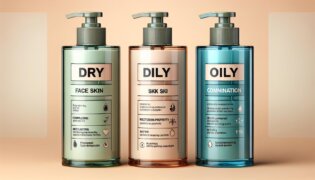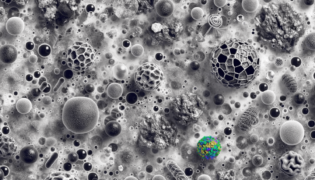No, retinol does not help with skin tags. Retinol is effective for anti-aging, improving skin texture, and reducing fine lines, but it does not target skin tags directly.
Causes of Skin Tags
Skin tags, also known as acrochordons, are small, benign skin growths that are typically harmless. They are often found in areas where the skin rubs against itself, such as the neck, underarms, and groin.
Alternative Skin Tags Remover Options
Since retinol is not effective for removing skin tags, it’s crucial to explore alternative treatments. Some common methods for skin tag removal include:
- Cryotherapy: freezing the skin tag using a special solution, typically liquid nitrogen.
- Electrocautery: burning off the skin tag with an electrical current.
- Excision: cutting off the skin tag using a sterile blade.
- Ligation: tying a small thread or suture around the base of the skin tag to cut off blood supply.
- Over-the-counter treatments: Various over-the-counter skin tag removers are available. However, their effectiveness may vary.
Skincare Logix Insights
At Skincare Logix, a blog about skincare, we recommend consulting with a dermatologist for safe and effective skin tag removal methods. Self-treatment or attempting to remove skin tags at home can result in potential scarring, infection, or other complications.
Does Retinol Help With Skin Tags?
No, retinol does not help with skin tags. Retinol is effective for anti-aging, improving skin texture, and reducing fine lines, but it does not target skin tags directly.
Causes of Skin Tags
Skin tags, also known as acrochordons, are small, benign skin growths that are typically harmless. They are often found in areas where the skin rubs against itself, such as the neck, underarms, and groin.
Understanding Retinol and Its Benefits
Retinol is a vitamin A derivative commonly found in various skincare products, particularly those designed for anti-aging. Its primary benefits include boosting collagen production, reducing fine lines, improving skin texture, and enhancing skin elasticity. While retinol can benefit the skin in many ways, it does not address skin tags directly.
Alternative Skin Tags Remover Options
Since retinol is not effective for removing skin tags, it’s crucial to explore alternative treatments. Some common methods for skin tag removal include:
- Cryotherapy: freezing the skin tag using a special solution, typically liquid nitrogen.
- Electrocautery: burning off the skin tag with an electrical current.
- Excision: cutting off the skin tag using a sterile blade.
- Ligation: tying a small thread or suture around the base of the skin tag to cut off blood supply.
- Over-the-counter treatments: Various over-the-counter skin tag removers are available. However, their effectiveness may vary.
Skincare Logix Insights
At Skincare Logix, a blog about skincare, we recommend consulting with a dermatologist for safe and effective skin tag removal methods. Self-treatment or attempting to remove skin tags at home can result in potential scarring, infection, or other complications. It is essential to understand that retinol, despite its numerous skin benefits, should not be used as a skin tags remover. Instead, explore appropriate options in consultation with a skin care professional for the best possible results.
Frequently Asked Questions
Many readers might have additional queries or concerns about retinol and skin tags. Here are some frequently asked questions along with concise answers to address those concerns:
Can retinol cause skin tags?
No, retinol does not cause skin tags. Retinol is known for its anti-aging properties and helps in improving skin texture, reducing fine lines, and boosting collagen production, but it is not a contributing factor in the formation of skin tags.
Are skin tags dangerous or an indication of a medical issue?
Skin tags are generally benign and harmless growths. They are not typically indicative of any serious medical issues. However, in rare cases, multiple skin tags could be associated with certain medical conditions, so if you notice any sudden increase in skin tags, consult a dermatologist for an evaluation.
Can skin tags be prevented?
Some measures can be taken to minimize skin tag formation, such as maintaining a healthy weight, wearing loose-fitting clothing to reduce skin friction, and practicing proper skincare routines. However, there is no guarantee that these measures will prevent skin tags entirely, as they may also be influenced by genetic factors.
Will retinol help with other skin conditions like acne and hyperpigmentation?
Yes, retinol can help target various skin concerns, including acne and hyperpigmentation. Its ability to increase cell turnover can help unclog pores, decrease inflammation, and promote even skin tone, thereby improving the overall appearance and texture of the skin.
How long does it take for skin tags to fall off after undergoing a removal procedure?
The time it takes for skin tags to fall off after a removal procedure varies depending upon the method used. Cryotherapy and electrocautery may result in quicker shedding of the tags, while over-the-counter treatments and ligation can take longer. In general, it may take anywhere from a few days to a few weeks for skin tags to fall off after treatment.




















